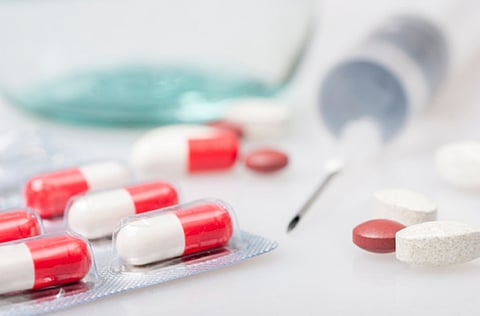UAE drug trend claims younger victims
Growing numbers of children as young as 10 are duped into taking illegal drugs

Dubai: A new drug trend is claiming victims in the UAE – pre-teen addicts.
It has been suggested that the age of new drug users has dropped from an average 17-18 years to as young as 10 year, according to a new report by the Ministry of Interior.
Dr Mohammad Abdullah Murad, Secretary General of the Juvenile Awareness and Care Association of Dubai Police, estimated that nearly 40 per cent of illegal drugs in the world are sold in the Gulf region.
And unfortunately, drug trafficking has had a direct effect on consumption among pre-teens, causing an increase in drug abuse among juveniles in the UAE, says a report published in Ministry of Interior magazine, 999.
According to Dubai Health Authority’s Shamsa Abdullah Hammad, Director of the Afia health centre, many of these children were duped into taking illegal drugs. Their ‘friends’ encouraged them to take tramadol pills that they claimed were “vitamins”.
“It all started when I was at a party and a couple of my friends were smoking something,” a 19-year-old, called John, said. “They said, ‘It’s some good stuff man’, and they asked me if I wanted to try. So I did and it felt good.”
In other situations, youths that suffer from depression or have a lack of communication at home and in school are more susceptible to giving into social pressures and consuming illegal drugs to fit in.
Another big factor is convenience. Drugs such as tramadol are easily available around the house for children to consume. With tramadol fetching Dh2 to Dh10, these drugs are cheaper and easy to get.
“There are many children aged just 12 taking tramadol,” Hammad said. “They get it from older friends who tell them it will help them study better.”
Elsa, a parent of two children tries to do as much as possible to keep an eye on her children and keep them from harm’s way, but says schools should be made just as responsible for the issue.
“We live in a multicultural society,” Elsa, a mother of two living in Jumeirah said, “and what may have been common here once is growing in popularity”.
The action needed to combat this epidemic goes further than attempts by police to stop drug trafficking in UAE.
The National Rehabilitation Centre (NRC) and the International Drug Policy Consortium (IDPC) held a regional conference in 2011 on drug use and planned to address the issue directly with 12-14 year olds by taking anti-drug education to schools.
Since then, the NRC and the Abu Dhabi Education Council have worked together and led a four-day anti-drug workshop for Abu Dhabi school teachers, social workers and NRC nurses. The programme is meant to eventually include schools all over the country. Similarly in February this year, Sharjah police took part in a health awareness drive at the American University of Sharjah. The campaign sported the motto, “My Family, My Happiness, No Drugs,” educating people on tools used to consume drugs, and the various types and materials that are used to make them.
“Families have a big role in protecting their children from drug abuse,” an official at the venue said. “Encourage them to talk freely with their parents, listen to them carefully, illustrate to them the dangers of drug abuse, and give them the opportunity to express their views and provide a good role model.”



